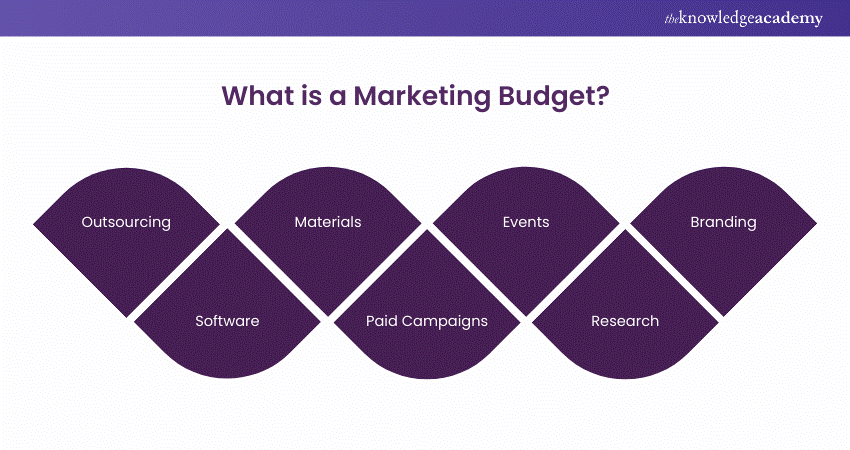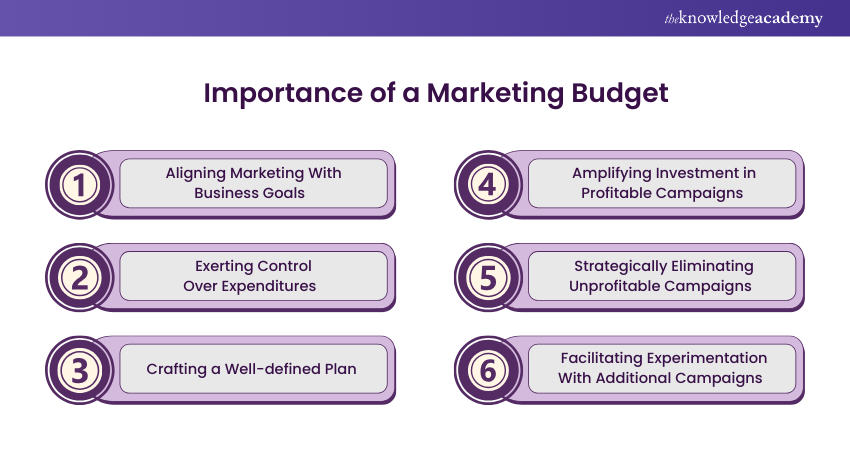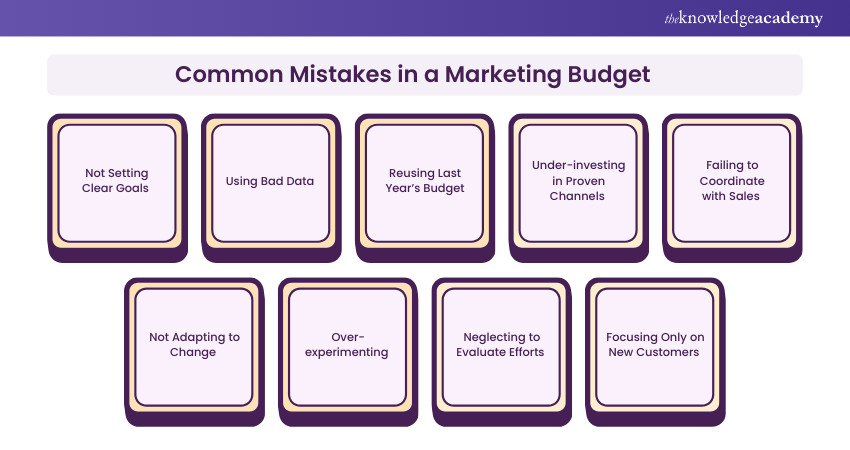We may not have the course you’re looking for. If you enquire or give us a call on +357 26030221 and speak to our training experts, we may still be able to help with your training requirements.
We ensure quality, budget-alignment, and timely delivery by our expert instructors.

imagine launching a groundbreaking product without a well-planned marketing strategy. A Marketing Budget ensures resources are allocated efficiently, allowing for targeted campaigns that capture the right audience. This strategic allocation maximises the impact of marketing efforts and provides a framework for measuring return on investment, highlighting the Importance of a Marketing Budget.
Consider a small startup trying to make its mark in a competitive market. Without a dedicated Marketing Budget, it might be overshadowed by larger competitors. A well-defined Marketing Budget empowers the startup to invest in channels like social media and SEO. Let’s dive in to learn more about the Importance of a Marketing Budget.
Table of Contents
1) What is a Marketing Budget?
2) What Does a Marketing Budget Include?
3) The Importance of a Marketing Budget
a) Aligning Marketing with Business Goals
b) Exerting Control Over Expenditures
c) Crafting a Well-defined Plan
d) Amplifying Investment in Profitable Campaigns
e) Strategically Eliminating Unprofitable Campaigns
f) Facilitating Experimentation With Additional Campaigns
4) Common Mistakes in a Marketing Budget
5) Conclusion
What is a Marketing Budget?
A Marketing Budget projects the funds allocated by a company for marketing endeavours during a particular timeframe, such as a month, quarter, or year. This encompasses all expenses associated with marketing, advertising, and selling the products or services of a business, including:

a) Outsourcing: Hiring staff, freelancers, or agencies for marketing tasks
b) Software: Paying for marketing software, tools, or platforms
c) Materials: Making and distributing marketing materials, such as flyers, Brochures or videos
d) Paid Campaigns: Running paid campaigns, such as online ads, social media ads, or email marketing
e) Events: Participating in events, such as trade shows, webinars, or podcasts
f) Research: Conducting market research, such as interviews, surveys or focus groups
g) Branding: Building and maintaining the brand identity, such as logo, website, or social media profiles
A Marketing Budget plays a crucial role by helping businesses strategise, oversee, and enhance their marketing efforts. It ensures that marketing activities are more effective and focused by aligning them with overall goals and objectives. A Marketing Budget also helps the business track and measure its marketing performance and calculate its Return on Investment (ROI). A Marketing Budget can help the business to grow its revenue, increase its market share, and improve its customer satisfaction.
What Does a Marketing Budget Include?
An effective marketing strategy relies heavily on a robust Inbound Infrastructure. Combining essential digital elements and syncing with sales procedures can help companies guarantee that their strategy is adequately backed and prosperous.
1) Inbound Infrastructure
A strong digital framework is essential for supporting all components of our strategy in Inbound Infrastructure. An all-inclusive Marketing platform like HubSpot is perfect, incorporating essential elements like a website, blog, landing pages, email marketing, and social media channels.
Having well-prepared commercial processes is crucial for seamless integration with your CRM and effective communication with the Sales team. The alignment is essential for Inbound Marketing to succeed.
2) Content for Inbound Marketing
Content is the cornerstone of Inbound Marketing. HubSpot, the trailblazers of this approach, revolutionised content strategy by focusing on topics rather than mere keyword optimisation.
Their method is straightforward: start with a broad, central topic (a Pillar) and link it internally to related subjects within a topic cluster. This structure helps search engines understand the relationship between content pieces, boosting the Pillar Page’s ranking in search results.
If in-house content creation isn’t feasible, consider outsourcing to freelancers or agencies. Infographics and ongoing SEO optimisation are essential visual elements.
3) Visibility on the Internet
Inbound Marketing also includes an essential aspect of Outbound Marketing: Paid Search, often utilising Google Ads. Effective SEO guarantees that our content shows up in the right places where our target audience is looking, but improving our ranking will require patience.
Paid Search and organic Search on search engines and social media typically work best when used together. Think about utilising Display campaigns or native advertising also.
4) Management and Automation
Your inbound approach will primarily concentrate on content and the journey of the buyer. However, remember to utilise lead nurturing strategies and Marketing Automation to organically steer leads towards making a purchase.
Workflows, email nurturing, and chatbots serve as valuable resources for automation, guaranteeing that your business remains operational even in your absence.
5) Team Training
Team training is frequently disregarded when creating a Marketing Budget. Don't forget that your team will develop, execute, and bring creativity to your strategy.
Dedicate a portion of your budget to training the entire marketing team and, if feasible, the sales team. The alignment of Marketing and Sales is essential, and having practical knowledge is key to achieving success.
The Marketing Budget for your company depends on its nature, maturity, growth, and business objectives. Nonetheless, a clearly outlined budget strategy is essential for the success of your digital plan. If you are unable to include all necessary items in your plan, think about outsourcing your Marketing tasks.
Looking to have a structured budget for your marketing activities, refer to our blog on Startup Marketing Budget.
The Importance of a Marketing Budget
A Marketing Budget is not just a number that you set and forget. It is a strategic tool that can help you with several aspects of your marketing, such as:

1) Aligning Marketing With Business Goals
A Marketing Budget helps you align your marketing activities with your overall business goals. By setting a clear and realistic budget, you can prioritise your marketing objectives, identify your target audience, and choose the most effective channels and tactics to reach them. A Marketing Budget also helps you communicate your marketing strategy to your stakeholders and get their buy-in and support.
2) Exerting Control Over Expenditures
A Marketing Budget helps you exert control over your expenditure and avoid overspending or underspending on your marketing campaigns. By allocating a specific amount of money for each marketing activity, you can monitor your spending and adjust it as needed. A Marketing Budget also helps you compare your actual spending with your planned spending and analyse the variance and its causes.
3) Crafting a Well-defined Plan
A Marketing Budget helps you craft a well-defined plan for your marketing campaigns. By creating a budget, you can outline your marketing goals, strategies, tactics, timelines, and expected outcomes. A Marketing Budget also helps you assign roles and responsibilities to your marketing team and ensure accountability and transparency.
Boost your business with our Marketing Strategies Training - Register now!
4) Amplifying Investment in Profitable Campaigns
A Marketing Budget helps you amplify your investment in profitable campaigns and maximise your Return on Investment (ROI). By monitoring your spending and assessing your results, you can evaluate how effective and efficient your marketing campaigns are. This allows you to identify the campaigns that are most successful in generating revenue, leads, conversions, or achieving other targeted outcomes. A Marketing Budget also helps you allocate resources to high-performing campaigns and optimise your marketing mix.
5) Strategically Eliminating Unprofitable Campaigns
A Marketing Budget helps you strategically eliminate unprofitable campaigns and minimise your losses. Keep track of your spending and assess results to pinpoint campaigns that are not performing well. This prevents you from squandering resources, time, and risking harm to your reputation. A Marketing Budget also helps you cut off unprofitable campaigns and redirect your resources to the more promising ones.
6) Facilitating Experimentation With Additional Campaigns
A Marketing Budget helps you facilitate experimentation with additional campaigns and explore new opportunities. Designate a portion of your budget for trying out new ideas and fostering innovation. This gives you the opportunity to discover fresh ideas, platforms, tools, or methods that may enhance your marketing efficiency or tap into new markets. A Marketing Budget also helps you measure the impact of your experiments and learn from your failures and successes.
Common Mistakes in a Marketing Budget
Justing knowing the Importance of Marketing Budget is not enough, you need to avoid shortcomings as well. Let’s discover the common pitfalls to avoid when managing digital Marketing Budgets:

1) Not Setting Clear Goals
One of the most significant mistakes businesses make when starting a Digital Marketing Budget is failing to set clear goals. Without well-defined objectives, creating an effective budget is impossible. Ensure that your Digital Marketing goals align with your company’s vision and allocate your budget accordingly.
2) Using Bad Data
Developing a budget for Digital Marketing necessitates trustworthy information. Depending on incorrect data or human mistakes is a frequent error. Improve your ability to collect data and analyse it and compare performance before and after launching campaigns to determine their effectiveness.
3) Reusing Last Year’s Budget
Some companies view the Digital Marketing Budget as a mundane job and frequently adjust the previous year's budget. Nonetheless, Marketing goals, pricing, technology, and trends evolve on an annual basis. Review your objectives each year and establish a fresh financial plan. Include all pertinent parties in the budgeting procedure.
4) Under-investing in Proven Channels
Email Marketing is frequently underestimated in budget planning despite its high effectiveness. Channels that are performing well can become inactive without regular maintenance. Keep funding established tactics and concentrate on enhancing customisation, automation, and experimentation.
5) Failing to Coordinate with Sales
A Digital Marketing Budget needs to be in line with sales forecasts and results. Ineffective campaigns may result from a lack of coordination with sales. Make sure to prioritise communication between the Marketing and sales teams to guarantee alignment. Consistently evaluate and fine-tune your sales funnel to enhance your Digital Marketing plan.
6) Not Adapting to Change
While established channels should be given priority, new tools and technologies should also be given resources. Putting off investing in new strategies can lead to negative outcomes. Set aside a portion of your budget to test out innovative strategies such as chatbots or virtual reality, as they may be crucial for your company’s future success.
7) Over-experimenting
Adjusting to change is essential. However, too much trial and error can lead to high expenses and inefficiency. Refrain from attempting every option to determine what is effective. Construct your financial plan using your objectives, tactics, and information.
8) Neglecting to Evaluate Efforts
Regularly evaluate your Digital Marketing efforts to determine the effectiveness of your budget. Many companies miss out on opportunities because they do not regularly test their strategies. Consistently oversee and improve your campaigns for maximum effectiveness.
9) Focusing Only on New Customers
Marketers tend to concentrate on gaining new clients, even though it is five times more expensive than keeping current ones. Allocate a portion of your budget to focus on customer retention, as it has the potential to greatly increase your return on investment.
Conclusion
In essence, a Marketing Budget isn’t just a financial plan—it’s your strategic compass. It ensures every penny fuels growth, aligns with your goals, and maximises ROI. By recognising the importance of marketing, you can pivot with market shifts, capitalise on new opportunities, and drive sustained success. Plan smart, spend wisely, and watch your business thrive.
Explore the endless world of Marketing opportunities with our Marketing Courses today!
Frequently Asked Questions

Begin formulating a Marketing Budget by establishing specific objectives that are in line with your business goals. Evaluate previous results, examine benchmarks in the industry, and distribute resources to key channels. Give priority to spending that is expected to bring a high return on investment.

Allocate 5-10% of your revenue to marketing, adjusting based on industry standards, business goals, and growth targets. Track ROI and Customer Acquisition Cost (CAC) to ensure efficiency. Consider competitor spending and be flexible to adapt to market changes and opportunities. Regularly review and adjust your budget as needed.

The Knowledge Academy takes global learning to new heights, offering over 30,000 online courses across 490+ locations in 220 countries. This expansive reach ensures accessibility and convenience for learners worldwide.
Alongside our diverse Online Course Catalogue, encompassing 17 major categories, we go the extra mile by providing a plethora of free educational Online Resources like News updates, Blogs, videos, webinars, and interview questions. Tailoring learning experiences further, professionals can maximise value with customisable Course Bundles of TKA.

The Knowledge Academy’s Knowledge Pass, a prepaid voucher, adds another layer of flexibility, allowing course bookings over a 12-month period. Join us on a journey where education knows no bounds.

The Knowledge Academy offers various Marketing Budget Courses, including the Introduction to Marketing Training, Content Marketing Course, and Strategic Marketing Course. These courses cater to different skill levels, providing comprehensive insights into Marketing Budget.
Our Digital Marketing Blogs cover a range of topics related to Marketing, offering valuable resources, best practices, and industry insights. Whether you are a beginner or looking to advance your Digital Marketing skills, The Knowledge Academy's diverse courses and informative blogs have you covered.
Upcoming Digital Marketing Resources Batches & Dates
Date
 Introduction to Marketing Training
Introduction to Marketing Training
Fri 14th Mar 2025
Fri 9th May 2025
Fri 11th Jul 2025
Fri 12th Sep 2025
Fri 14th Nov 2025







 Top Rated Course
Top Rated Course



 If you wish to make any changes to your course, please
If you wish to make any changes to your course, please


